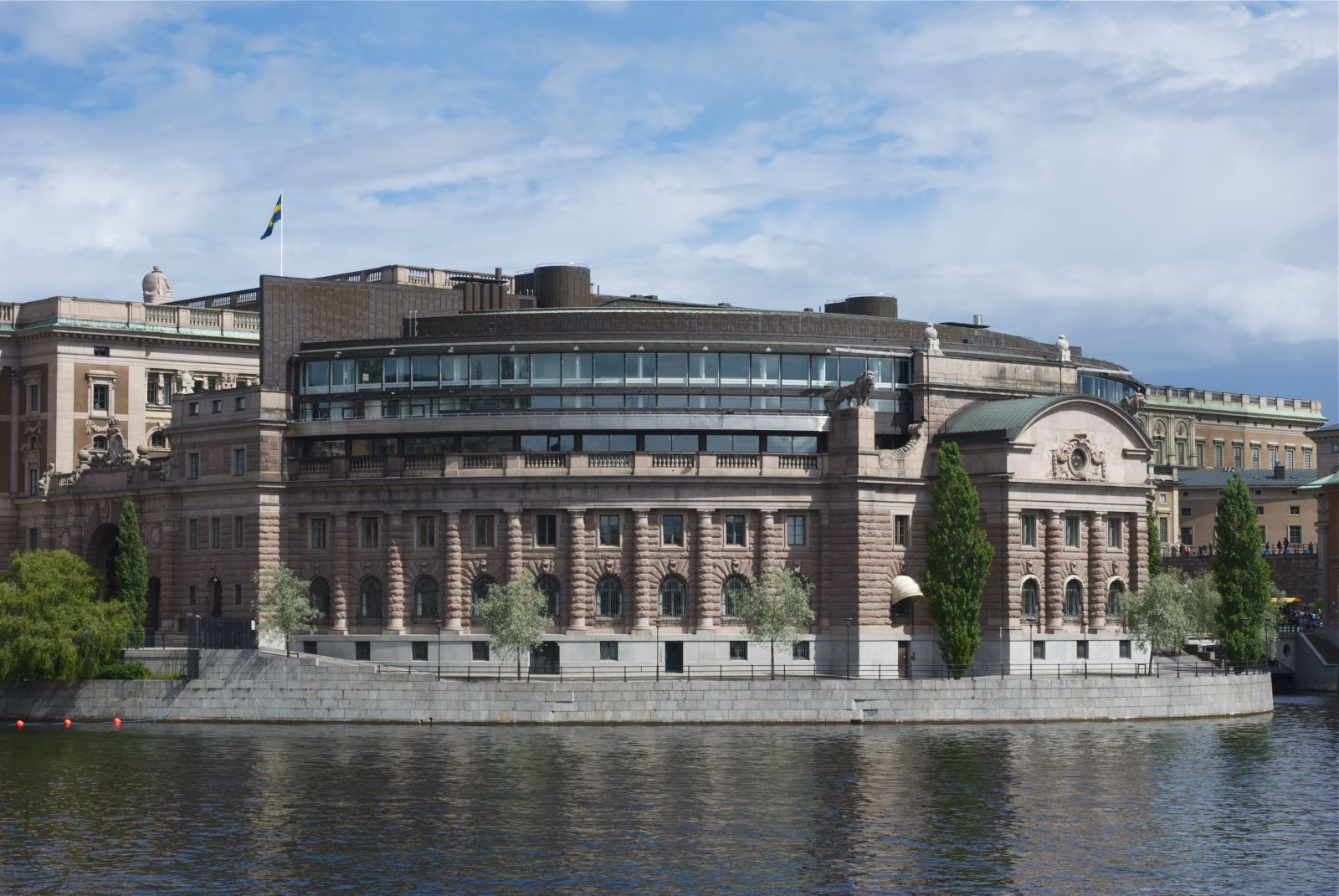A Brexit reality check in Stockholm
Written by: Nick Phipps
L. Alan Winters is Professor of Economics and Director of the UKTPO
Rule 1 for negotiation: work out what you want and how much you can pay for it.
Rule 2: try to understand where the other side is coming from and how they feel.
The muted mood this week among trade specialists in Sweden, one of the UK’s closest allies in the EU, should serve as a reality check ahead of Brexit negotiations. If we want to make Brexit work, we need to take their views seriously.
 The Swedish Parliament building in Stockholm. Photo by Ankara (Own work) [CC BY-SA 3.0 (http://creativecommons.org/licenses/by-sa/3.0) or GFDL (http://www.gnu.org/copyleft/fdl.html)], via Wikimedia Commons
The Swedish Parliament building in Stockholm. Photo by Ankara (Own work) [CC BY-SA 3.0 (http://creativecommons.org/licenses/by-sa/3.0) or GFDL (http://www.gnu.org/copyleft/fdl.html)], via Wikimedia Commons
Earlier this week I was in Stockholm discussing post-Brexit trade policy to two well-informed audiences: at the KommersKollegium – the National Board of Trade in Sweden – and at the Stockholm Liberal Club.
I made much the same points as we made at the World Trade Organisation (WTO) Public Forum at the end of September and then sought views from the audience. They were pretty salutary, especially given that I had imagined that Stockholm would be one of the European capitals most sympathetic to the UK position.
Among the points I heard, and in some cases tried to counter, were:
On the politics
- Starting from the time a referendum became Conservative party policy, Sweden has been re-orienting its foreign policy away from Britain and towards Germany.
- There was a firm belief that the UK government had chosen a hard Brexit and that there was little its friends (i.e. Sweden) could do to help negotiate anything softer.
- The preservation of the EU will take priority over pleasing the UK.
Details of the process
- The Article 50 process imposes little urgency on the EU member states to complete negotiations – thus resulting in a very asymmetrical negotiation.
- Given that a trade deal is likely to take longer than the two years allowed for exit negotiations, there may be a case for a transitional deal, extending trade on current terms for, say, three years after exit. However, agreeing one will be highly complex, because EU members will be reluctant to agree a deal on tariff-free access while the other three of the four single market freedoms – services, capital and labour – remain unresolved. Thus a transitional agreement will have to be comprehensive and, consequently, difficult.
- But if a transitional deal is comprehensive, will it be acceptable to the Brexiteers in the UK government, who might interpret it as effectively postponing exit?
- EU member states’ press and public interest in Brexit is already waning. It will be hard to motivate and sell compromises in the EU.
Challenges for business
- The challenge for business is uncertainty; unless the parameters of a final trade deal emerge relatively soon, investors will just not take the risk of investing heavily in the UK.
- Business groups and officials have already started to identify the sectors in which they expect (hope) that investment will forsake the UK for continental Europe following Brexit – e.g. for Sweden, financial services, ICT, life sciences and environmental goods.
These views do not mean that it is impossible to achieve a softer Brexit, and to do so over a longer period of time than two years, but they certainly suggest that it will require some quick but credible re-assurance to business and our partners followed by a sustained focus and diplomatic effort by the UK authorities.
Other messages from Stockholm
- Relabelling EU schedules of tariffs and other policies in the WTO as UK schedules should not cause great difficulty.
- The constitutional uncertainty about the Brexit process in the UK increases uncertainty.
- The EU Trade Commissioner, Cecilia Malmstrom, has said that the UK cannot even discuss trade matters before it exits the EU, but this need not prevent informal contacts with potential partners. Of course, though, the UK can’t sign anything before then.
Swedish exporters find exporting to Norway far more troublesome than exporting within the EU. This chimes with the UKTPO’s argument that the EEA is not a simple alternative to belonging to the EU customs union and Single Market (see: Roos And Rules: Why The EEA Is Not The Same As Membership Of The Single Market Briefing Paper).
Negotiating an effective Brexit is not a battle, but I am reminded of Helmuth von Moltke’s advice that ‘No battle plan ever survives contact with the enemy’. To formulate a workable plan the UK government and commentariat is going to need to invest heavily in understanding the other side of the table.
Disclaimer:
The opinions expressed in this blog are those of the author alone and do not necessarily represent the opinions of the University of Sussex or UK Trade Policy Observatory.
Republishing guidelines
The UK Trade Policy Observatory believes in the free flow of information and encourages readers to cite our materials, providing due acknowledgement. For online use, this should be a link to he original resource on the our website. We do not however, publish under a Creative Commons license. This means you CANNOT republish our articles online or in print for free.


